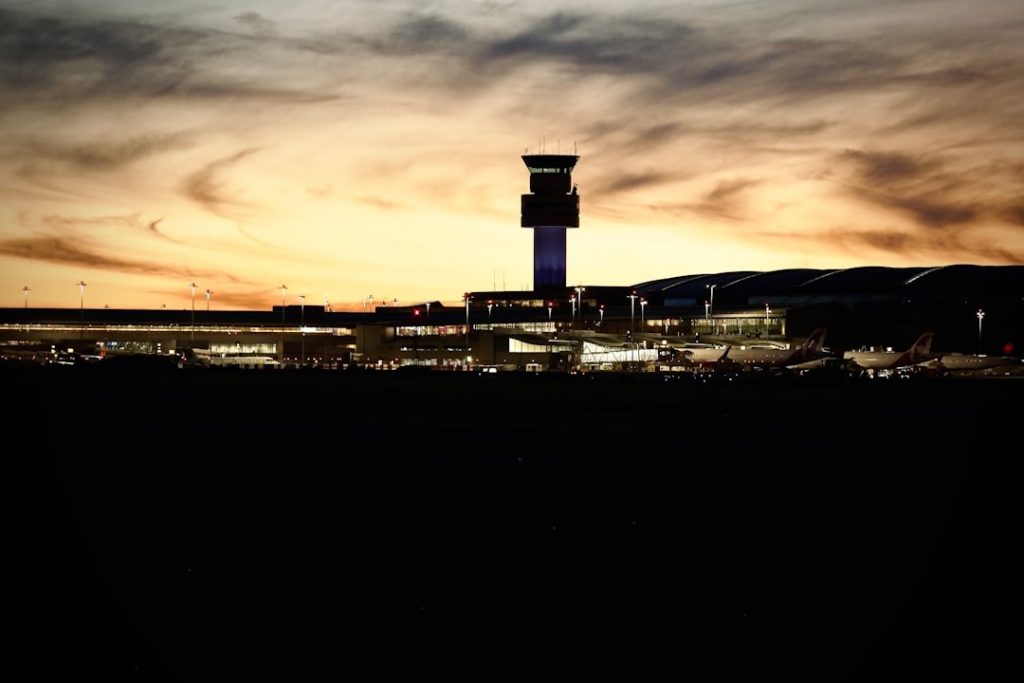A Symbol Too Big to Ignore
When I first came across the news that Aliko Dangote’s mega-refinery in Nigeria is set to ramp up to 650,000 barrels per day (BPD), I stopped scrolling. The scale of the project is staggering. Not just in terms of barrels or dollars, but in what it represents: ambition, pride, and a gamble on the future of energy in Africa Energy Transition 2025.

This refinery is more than an industrial complex. It is a story about Africa’s struggle for energy independence, about fossil fuels versus renewables, and about how one man’s vision can reshape an entire continent’s economic trajectory.
But as with most big stories, there are two sides: hope and concern. Hope that Nigeria finally breaks free from decades of dependence on fuel imports. Concern that this project may entrench Africa deeper into fossil fuel dependency at the very moment the world is racing toward a low-carbon future.
Table of Contents
Nigeria’s Paradox: Oil-Rich, Fuel-Poor
To understand why this refinery matters so much, we have to look at Nigeria’s paradox.
- Nigeria is Africa’s top oil producer, pumping millions of barrels of crude each day.
- Yet, Nigerians routinely queue for hours at petrol stations.
- Why? Because the country lacks functional refineries. Its state-owned plants in Port Harcourt, Warri, and Kaduna have been plagued by corruption, mismanagement, and decades of underinvestment.
The result is almost absurd: Nigeria exports crude oil to global markets, then spends billions importing refined products like gasoline and diesel. This cycle has drained government finances and created chronic fuel shortages that cripple daily life.
For years, Nigerians have dreamed of breaking this cycle. The Dangote refinery promises exactly that.
Dangote Refinery: The Numbers That Shock
When people call it a “mega-refinery,” they aren’t exaggerating.
- Capacity: 650,000 BPD — one of the largest single-train refineries in the world.
- Location: Lekki Free Zone, Lagos State, strategically positioned for exports.
- Cost: Over $19 billion invested.
- Footprint: Sits on 2,635 hectares of reclaimed land.
- Output: Gasoline, diesel, jet fuel, polypropylene, and other petrochemicals.
- Pipelines: A 1,100 km pipeline network to bring crude oil in and distribute products out.
This isn’t just a refinery—it’s an industrial city.
For Nigeria, the refinery represents a dream of energy sovereignty: no more dependence on foreign refineries, no more billions wasted on imports.
Aliko Dangote: The Man Behind the Project
It’s impossible to tell this story without mentioning the man driving it.
- Aliko Dangote is Africa’s richest man, with a net worth exceeding $10 billion.
- He built his fortune through cement, sugar, and salt, becoming a household name in Nigeria and beyond.
- The refinery is his boldest gamble yet, not just in business but in legacy.
To me, Dangote symbolizes both the promise and the contradictions of African capitalism. On one hand, he shows what African entrepreneurs can achieve at global scale. On the other, his outsized influence raises concerns about monopolies and whether ordinary Nigerians will truly benefit.
The Economic Promise
Supporters of the refinery argue it will be transformative:
- Fuel Independence
Nigeria currently spends up to $10 billion annually importing refined fuels. The refinery could save that money and keep it circulating within the economy. - Job Creation
Tens of thousands of workers were employed during construction. Thousands more will run the plant, with spillover effects in logistics, distribution, and services. - Export Potential
With 650,000 BPD capacity, the refinery could supply not only Nigeria but much of West Africa, positioning Nigeria as a regional energy hub. - Foreign Exchange
Instead of bleeding dollars on imports, Nigeria could earn them through refined fuel exports.
For a country battling unemployment, inflation, and currency crises, these benefits are tantalizing.
The Sustainability Dilemma
Yet, for every promise, there is a risk.
Fossil Fuel Lock-In
The world is transitioning away from oil. By investing nearly $20 billion in refining, Nigeria is tying its future to a sector that may face steep decline in the coming decades.
Environmental Impact
Refineries are among the most polluting industrial facilities. Emissions, flaring, spills, and waste will inevitably affect surrounding ecosystems and communities.
Global Reputation
As countries commit to net-zero targets, how will Nigeria’s massive fossil fuel expansion be viewed? Will it attract or deter investors in a carbon-constrained future?
As someone deeply invested in sustainability, I can’t ignore these questions. They cut to the core of whether the refinery is a bold step forward—or a dangerous detour.
Africa’s Energy Dilemma: Between Justice and Survival
Africa contributes less than 4% of global greenhouse gas emissions, making its share in global emissions relatively small compared to other regions. Despite this limited contribution, it remains one of the regions most vulnerable and exposed to the harsh impacts of climate change. Rising sea levels are threatening coastal areas, desertification is spreading across arid lands, and extreme weather events are becoming increasingly frequent and severe, causing significant devastation to communities across the continent.
This creates a moral dilemma:
- Is it fair to demand Africa abandon fossil fuels when Europe, America, and Asia built their wealth on them?
- Or should Africa leapfrog directly to renewables, bypassing the mistakes of the Global North?
The Dangote refinery sits squarely in this tension. It is both a symbol of African self-determination and a reminder of the uneven playing field of global climate politics.
Business Sustainability Investment 2025: Why 82% of Companies Invest
Global Comparisons: Refineries in Decline Elsewhere
While Nigeria builds, others dismantle.
- In Europe and North America, many refineries are shutting down or converting to biofuel plants.
- Oil majors are diversifying into renewables, hydrogen, and carbon capture.
- Investors are increasingly wary of financing new fossil fuel infrastructure.
Dangote’s refinery stands out as almost an anomaly—a mega-project in a world moving in the opposite direction. Will it be celebrated as visionary, or criticized as out of step?
Community Voices: What Nigerians Say
In conversations and reports, Nigerian citizens express mixed views:
- Hope: “Finally, no more fuel queues. We can stand tall as a nation.”
- Skepticism: “Will prices really drop, or will Dangote just control the market?”
- Concern: “What about pollution in Lekki? What about our fishermen and farmers?”
For me, these voices matter most. A project of this scale must be judged not only by barrels and dollars but by its human impact.
The Bigger Picture: Energy Security in West Africa
Nigeria’s refinery is not just a national asset—it’s a regional one. Many West African countries rely heavily on fuel imports. A functioning mega-refinery in Lagos could:
- Stabilize regional fuel prices.
- Reduce reliance on European and Asian imports.
- Strengthen West African economic integration.
Yet, it could also create dependency—on Nigeria, on Dangote, and on fossil fuels.
Alternatives: What If Nigeria Chose Renewables?
I sometimes wonder: what if Nigeria invested $19 billion not in oil refining, but in solar, wind, and battery storage?
- Nigeria has some of the best solar potential in the world.
- Distributed renewable energy could electrify rural communities still living in darkness.
- Clean energy jobs could match or exceed refinery jobs.
Of course, renewables don’t yet provide jet fuel or petrochemicals. But long-term, they may offer more resilience and less vulnerability than oil.
My Reflection: Progress or Paradox?
The Dangote refinery captivates my interest deeply because it perfectly embodies the complex paradox that defines Africa today: a vast continent abundant in natural resources and immense potential, actively striving toward economic development and modernization, yet simultaneously caught in a challenging struggle between relying on traditional models of growth and adapting to the urgent new imperatives of sustainability and environmental responsibility.
For Nigeria, the refinery may bring relief, pride, and revenue. For the world, it raises tough questions about fairness, timing, and responsibility.
Is this progress? Yes. Is it paradoxical? Absolutely.
The Road Ahead: What Will Decide Success
The fate of this refinery depends on several factors:
- Management and Transparency
If corruption seeps in, benefits could vanish. - Pricing and Regulation
Nigerians will judge success by whether fuel becomes affordable and accessible. - Integration with Renewables
Can the refinery coexist with a growing clean energy sector? - Global Oil Market Trends
If oil demand collapses faster than expected, the refinery risks becoming a stranded asset.
Conclusion: A Gamble Worth Watching
At 650,000 BPD, the Dangote refinery is not just a project—it’s a gamble on Africa’s future.
I can’t help but admire its audacity. It speaks to a continent unwilling to be forever dependent, determined to chart its own course. But I also worry: in choosing oil, Nigeria may be betting on a past the world is leaving behind.
For me, the refinery is both a triumph and a cautionary tale. A triumph of ambition, engineering, and African self-reliance. A cautionary tale of what happens when development collides with climate reality.
Whether history ultimately remembers this moment as Africa’s great leap forward or as a colossal misstep will depend not merely on the number of barrels produced per day, but more importantly on whether Nigeria seizes this critical opportunity to also invest deeply in building a just, clean, and resilient energy future for all its people. The long-term impact will be shaped by how effectively the country balances immediate economic gains with sustainable development goals and energy equity.


